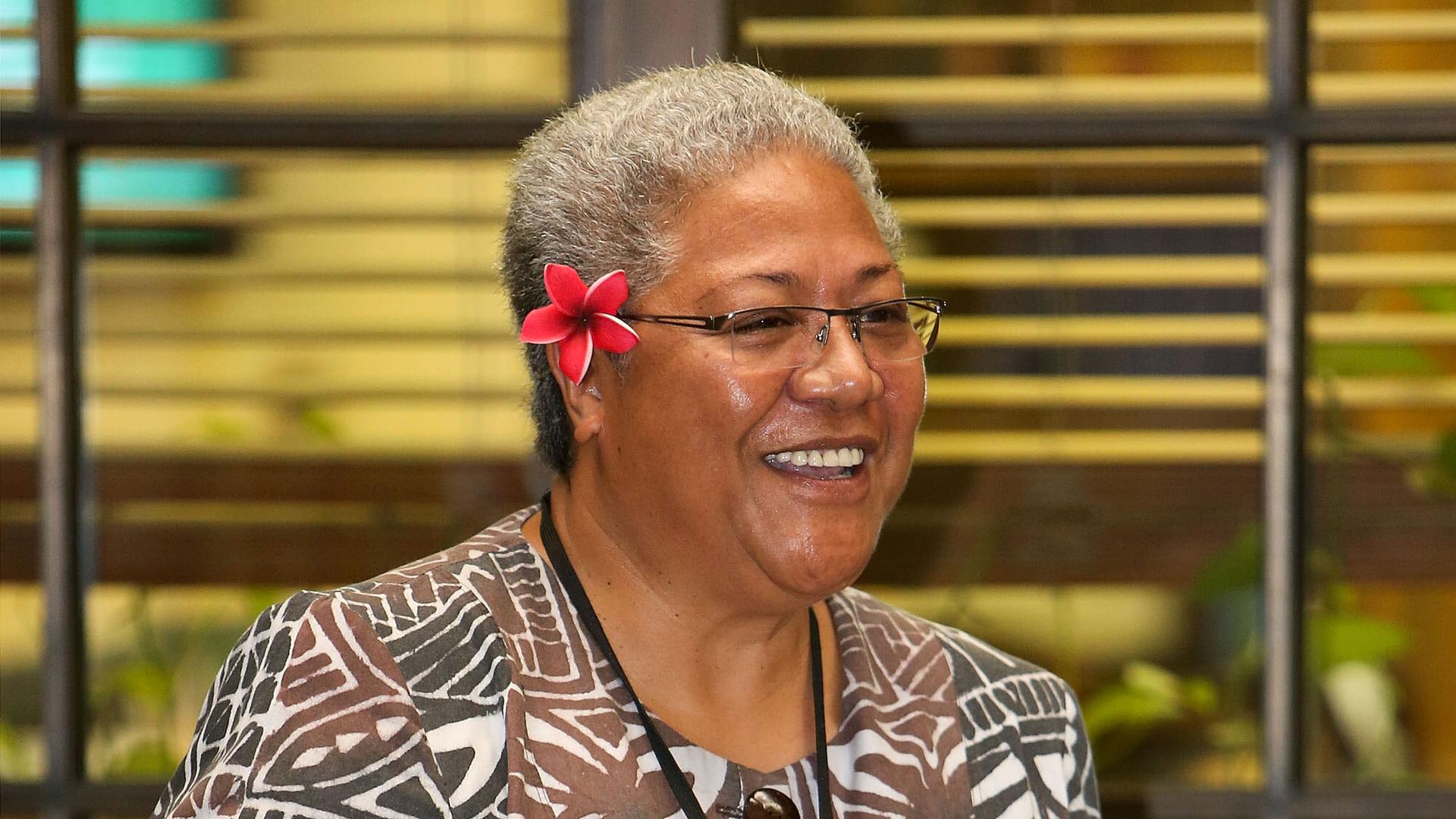Samoa’s new prime minister has been busy ever since she was finally allowed to take office last week.
In late July, a Samoan appeals court confirmed Fiamē Naomi Mata-afa — the leader of the new Faʻatuatua i le Atua Samoa ua Tasii party, or FAST — as the country’s new prime minister, since being sworn in during an ad-hoc tent ceremony in May. The confirmation brings to a close a dramatic political stalemate that left the small Pacific island nation without a leader for some three months.
The move ushered in both Samoa’s first political turnover in four decades, as well as, the nation’s first female leader.
Since starting her duties, Fiamē has installed a government, canceled a controversial $100 million Chinese-funded port project and tried to start healing the wounds left in the wake of the constitutional crisis that delayed her ascension to prime minister.
Many are excited to finally see Fiamē — who was also Samoa’s first female cabinet minister and female deputy prime minister — come to power. But it’s been a long, traumatic journey since general elections were initially held in April, and many are now wondering how to avoid a situation like this in the future.
Related: Concerns about an English border loom over Scottish elections
‘It’s far from over’
“It’s been a variety of feelings, of shock, surprise, there’s been moments of sheer celebration and happiness.”
“I’ve been very, you know, it’s been a variety of feelings, of shock, surprise, there’s been moments of sheer celebration and happiness,” said Lagipoiva Cherell Jackson, an independent journalist, who has been both watching and covering the political drama unfolding in her home country.
The drama had all the trappings of a Hollywood blockbuster: razor-thin election results, long-time rulers clinging to power, highly politicized court rulings, politicians locked out of buildings, and the list goes on. All of this is overlaid by the fact that Samoa was on the precipice of having its first-ever female leader.
“But then, as it dragged on longer, just as we were feeling that there couldn’t be any more surprising obstacles in the way of a woman rising to leadership, more and more obstacles were put in her way,” Cherell Jackson said.
“It’s important to note that it’s far from over.”
Still, even though the situation seems to now be resolved, “it’s important to note that it’s far from over,” she said.
Since being ousted by the appeals court, the previous prime minister, Tuilaepa Sailele Malielegaoi, who had held the office for more than two decades, has now moved into an opposition figure role and continues to criticize the court’s decision to have him vacate the office.
And he has support.
On Monday, hundreds of people paraded through the streets of the capital, Apia, in support of Tuilaepa and his Human Rights Protection Party. Decrying what they called a “disintegration” of their constitution, demonstrators demanded the resignation of various judges involved in confirming Fiamē to power.
Related: Tibetans in exile elect a new president
Deep changes needed
One of Fiamē’s priorities while in office is avoiding this kind of situation from happening again.
Experts recommend adding constitutional safeguards to better uphold the rule of law, changing the number of parliament members and revising a broad constitutional provision that guarantees a certain level of female representation in government, among many issues that could be addressed.
Meanwhile, Damon Salesa, an associate professor of Pacific studies at the University of Auckland, said a change to the role of head of state — which is separate from that of prime minister — will likely be needed, as well.
“No one felt comfortable criticizing the current holder of the [head of state] position.”
The mostly ceremonial position is chosen from a group of very important chiefs in Samoa. “They have to be treated with enormous respect and that’s what made this all very challenging,” Salese said. “Because no one felt comfortable criticizing the current holder of the position.”
The current head of state, Tuimalealiifano Va’aletoa Sualauvi II, is the one who initially declared that Fiamē’s government could not be formed following the general elections in April. He then also called for new elections, helping deepen the constitutional crisis.
Related: Displaced Syrians in Turkey say Syria’s elections are a sham
Salesa, who is of Samoan descent himself, said the tendency to default to traditional authority — amid a culture of great patience and civility — may have kept the crisis from becoming violent. But, he said, there may also be a deeper conflict between traditional and democratic ways.
Journalist Cherell Jackson said that the most disturbing aspect of the last few months is that Fiamē, who is only the second woman to lead a Pacific Island nation, was denied leadership at all. “Women continue, in the Pacific, to fight this struggle despite all of their qualifications and all of the work they’ve put into place, so that they can rise to power.”
And that will continue to be an issue for Samoa and the region, she said.
